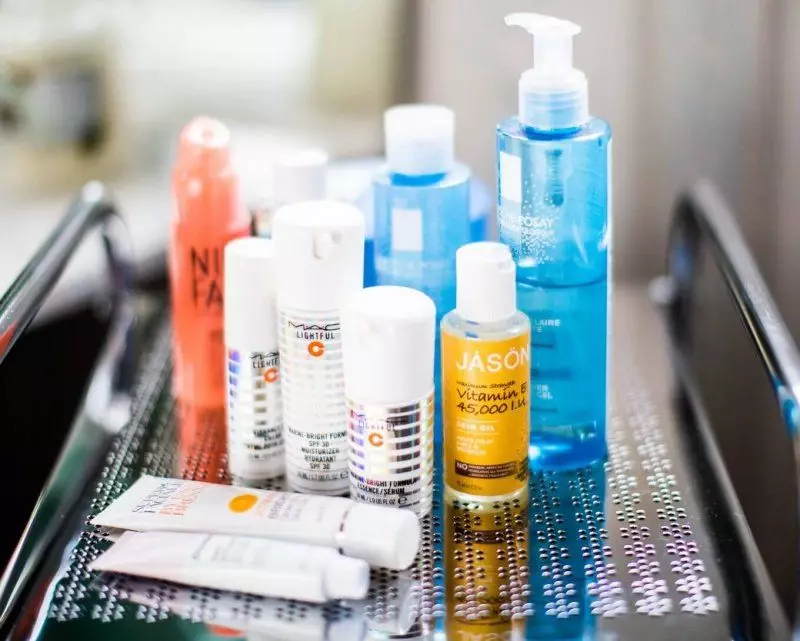
The skin is the largest organ of your body. That is why it’s important to take proper care of it and supply it with the nutrients it needs, in order to keep it healthy and good-looking.
Like every other organ, skin needs certain vitamins to stay healthy and function properly (including natural exfoliation and cell turnover). And those are not only vitamins that you put on your skin in the form of cosmetic products (like retinol- vitamin A), but the ones that you consume with different foods (fruits, veggies, fish, etc.) All that because skin health starts from inside!
This article will guide you through some of the vitamins that your skin needs to stay beautiful and healthy.
Let’s get started!
What vitamins does your skin need?
Your skin (like every other organ) needs a combination of all vitamins and minerals in different quantities. However, there are some vitamins that play a more important role in skin health than others. That being said, the controlled consumption of the vitamins A, C, and D (along with others) is important in order to provide your skin with benefits like effective skin cells regeneration, strong skin barrier, and improved free radicals residence capacity.
Let’s see each of those vitamins in detail!

Vitamin A
Evidence suggests that vitamin A and its derivatives (carotenoids) play an important role in improving skin’s photo-protection mechanism, as well as supporting healthy healthy skin cells production. [1] That being said, Vitamin A is responsible for strengthening skin’s protective barrier, which may reduce the risk of inflammations, infections, and UV light damage. [2]
Foods rich in vitamin A include [3]:
- Beef liver
- Sweet potato
- Spinach
- Pumpkin
- Carrots
- Mango
Keep in mind that topical vitamin A (often in the form of retinol or retinoids) is used for chemical peeling and stimulating skin exfoliation. This way, topically applied vitamin A is responsible for diminishing wrinkles, fine lines, signs of aging, and strengthening the protective barrier of the skin.
Vitamin C
Vitamin C deficiency in the body may cause various skin-related symptoms, including slow wound healing, and thickening of the stratum corneum (most superficial skin layer formed by dead skin cells). [4]
That bing said, vitamin C consumption plays an important role in supporting skin health by stimulating collagen synthesis, reducing UV damage (or photo-damage) and wrinkles, improving wound healing mechanism, diminishing oxidative stress, and stimulating skin moisture retention mechanism (reducing transepidermal water loss) [5]
Foods rich in vitamin C include:
- Citrus fruits
- Broccoli
- Berries
- Peppers
Vitamin D
Vitamin D is the only vitamin that we (as humans) can synthesise with the help of UV light (sunlight), and supply externally with food. So basically, we have two options:
- Stay under the sun unprotected for 15 minutes (not recommended by dermatologists, as sunbathing hides severe risks of skin damage and cancer development, and cannot ensure proper vitamin D synthesis)
- Get your vitamin D through food or supplements.
However, vitamin D is often underconsumed and according to 2020 statistics, about 50% of the world population suffers from vitamin D insufficiency. [6]
That being said, lack of enough vitamin D in the body may severely impact the skin. Evidence suggests that this vitamin may play an important role in maintaining and improving skin health especially in individuals suffering of psoriasis, atopic dermatitis, or other eczema-inducing skin condition (often dry, flaky or itchy skin) [7] Besides, this micronutrient is responsible for supporting overall skin health and functions.
Foods rich in vitamin D include [8]:
- Mackerel
- Salmon
- Mushrooms
- Trout
- Tuna
- Milk
- Eggs
Conclusion
Vitamins A, C, and D are often underestimated when it comes to skin health. However, their consumption is vital in order to support the health of your skin and prevent damage.
Therefore, it’s important to consume them through diverse and balanced diet. If you doubt that you may have vitamin deficiency, consult your healthcare provider or dietitian before reaching to supplements.








